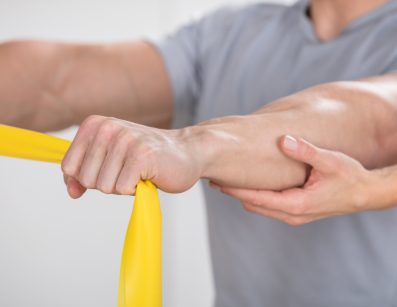Common golfing shoulder injuries and how to avoid them
Are you a fan of hitting the green? Maintaining healthy shoulder conditions is absolutely crucial for playing a peak performance golf game. And, importantly, it’s key to being able to play regularly without repeated motion pain experienced by many dedicated players.
Whether it’s advising on preventative strategies or facilitating swift recovery from a traumatic injury, orthopaedic specialists can play an important in role in keeping golfers fighting fit to play. Mr Soong Chua is a leading shoulder specialist with years of experience assisting golfers of all stripes. If you’re a golfer looking for expert sports healthcare, his Melbourne-based practice is here to support you every step of the way.
Here’s a guide to some of the most common shoulder injuries in golf and how you can avoid them.
Common types of golf-related shoulder injuries
- Rotator cuff tears
- Subacromial impingement syndrome
- Shoulder arthritis
- AC joint pain
- Instability of the shoulder joint
- SLAP tear
- Stress to scapula
How do golfing shoulder injuries occur?
While some might think that golf is a relatively low intensity sport, committed players know this couldn’t be further from the truth. A precise, hard-hitting follow-through has serious impact. It draws strength from all parts of the body, but particularly from the shoulder.
When you swing a club, each shoulder is subject to a different kind of extreme motion. Your leading shoulder is stretched far towards the body, while your non-leading shoulder rotates externally. Especially if you play frequently, this intense use of the full range of motion for both shoulders can damage the joint cartilage and overwork the muscles and tendons.
Alternatively, injury can occur from a shock motion while playing such as falling or hitting an unseen obstacle with your club. These types of injuries tend to be more immediately painful and severe than slow-building repeated motion injuries.
Prevention over pain
Here’s the golden rule: never play through pain. If you’re experiencing substantial soreness, tightness, twinging, or stiffness in the shoulder, stop playing. See a shoulder specialist as soon as possible so that existing damage doesn’t worsen.
However, there are a few key strategies you can implement to reduce your risk of severe golfing shoulder injuries.
- Always warm up before a game
- Focus on maintaining good technique while playing
- Explore other exercises to supplement your basic strength levels
- Make sure you’re using the right equipment for your body
Caring for injuries
Sometimes injuries occur. It’s an unfortunately common part of living an active lifestyle.
If your injury is mild, it’s likely you can treat it at home. Follow RICE: Rest, Ice, Compression, Elevation. Heat packs and pain medication can also help minimise pain.
If a week or so passes and you’re still experiencing significant discomfort, or if you have a sudden and traumatic injury on the course, you should consult with a medical professional.
If you have concerns about your shoulder mobility, don’t hesitate to get in touch with Mr Soong Chua’s team. He is passionate about bringing his years of skill and expertise to patients, supporting the maintenance of maximum mobility for active lifestyles. You’ll be back to winning holes before you know it.





